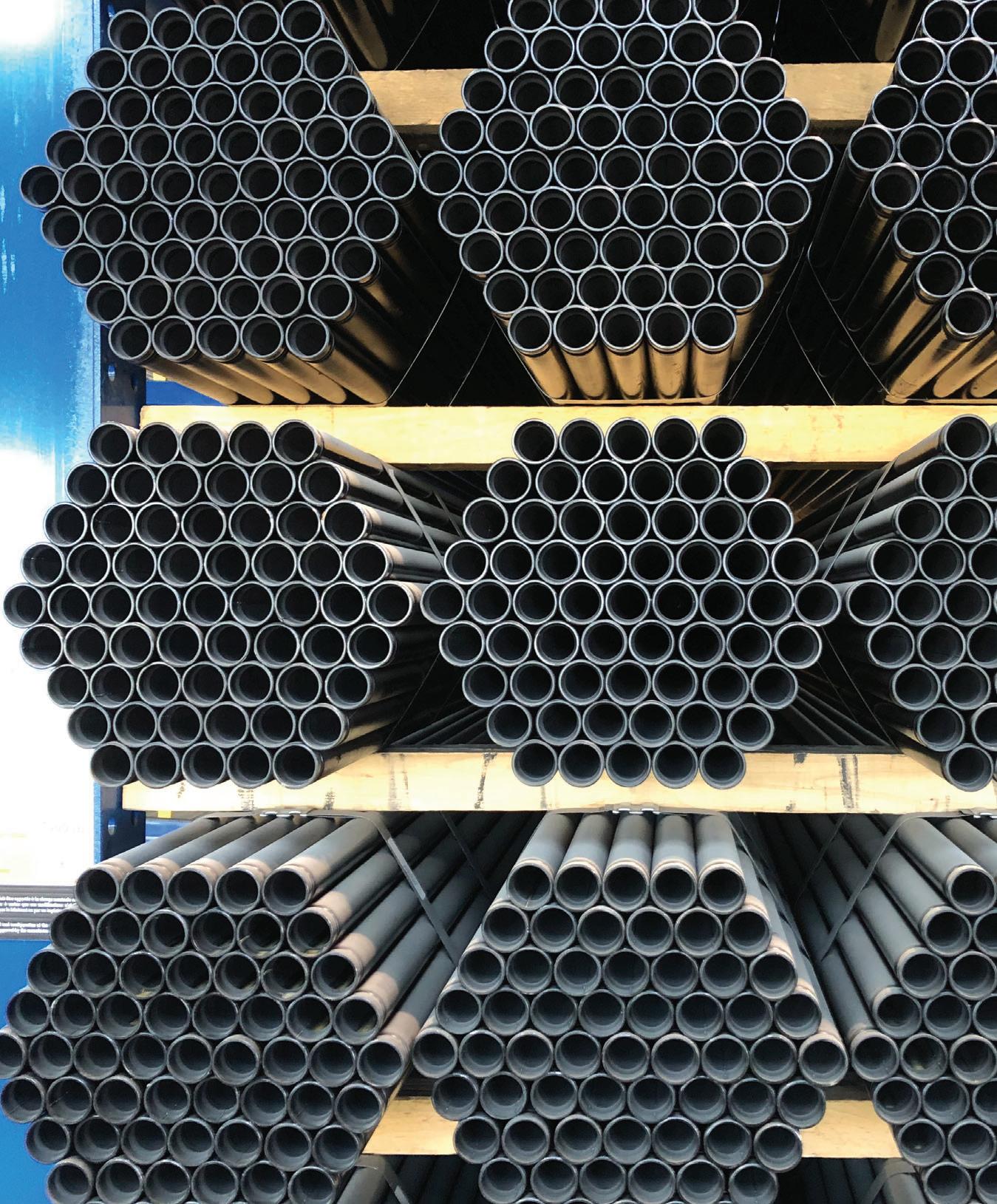
4 minute read
n Industry News 2023 Federal Budget “falls short” for construction businesses
from May/June 2023
By Leah Den Hartogh
The 2023 Federal Budget fell short for the construction industry and needed to include more employment opportunities for the HVAC/R trades. The budget, which was released on March 28 by Chrystia Freeland, deputy prime minister and minister of finance, largely focused on the electrifying of the grid rather than on consumer incentives for going net-zero.
“Canada’s construction industry is ready to become a leader in the transition to a net-zero economy and is optimistic about the promised investments in green building and innovation,” reports the Canadian Construction Association (CCA) in a press release. “The focus of this budget failed to recognize that the construction industry is a key player in achieving Canada’s net-zero targets, providing employment opportunities and building the infrastructure that Canadians rely on every day.”
According to the 2023 Budget, the scale of investments that Canada requires to reach net-zero by 2050 is significant, with estimates ranging from $60 billion to $140 billion per year on average. “It will be up to the private sector to make the majority of these investments, but to avoid the consequences of underinvestment, it is critical that governments invest in policy frameworks capable of mobilizing private capital,” states the budget.
Canada is looking to clean electricity as one way of achieving its 2035 decarbonization goals in the 2023 Budget.
The investment tax for clean electricity will see a 15 per cent refund for eligible investments. This will include nonemitting electricity generation systems (wind, concentrated solar, solar photovoltaic, hydro, etc.), abated natural gas-fired electricity generation, stationary electricity storage systems that don’t use fossil fuels in operation, and equipment for the transmission of electricity between provinces and territories.
These investments in clean energy were welcomed by Efficiency Canada, but the association still felt like the budget could have included more in terms of support. “We are concerned no new investments in energy efficiency were included in this budget, let alone support for low-income families struggling to meet their energy needs.”
The association also reports that Jonathan Wilkinson, minister of natural resources of Canada, said the government is actively considering a program that removes upfront costs for low-income Canadians across the country, which would make the oil-toheat pump program a first step towards decarbonization.
Workforce development
The Heating, Refrigeration, and Air Conditioning Institute of Canada (HRAI) was disappointed that there was no reference to workforce development investment. “Notably absent from the budget, however, are the kinds of investments in HVAC/R workforce development that HRAI has been championing for several years,” shared Martin Luymes, vice president of government relations for HRAI. “The HVAC/R industry is in need of financial support to help transition workers to the rapidly growing needs of the low-carbon economy. Without these supports, the industry will be unable to meet the government’s ambitious timelines.”
There were some welcome, important investments as part of the budget, according to HRAI. This included $500 million over
Continued on page “17”
Whenever Piping Is Involved

Continued from page “15”
10 years to the Strategic Innovation Fund to support the development and application of clean technologies in Canada. Additionally, the clean technology investment tax credit will remain as the phase-out is delayed to 2034.
The clean technology investment tax credit has also expanded and will now include geothermal energy systems that are eligible for capital cost allowance Classes 43.1 and 43.2.
Money back in your pocket
The tradespeople tool deduction will be doubled, according to the 2023 Federal Budget. “It is good news that this deduction will double from $500 to $1,000, allowing tradespeople who provide their own tools as part of their employment to cover rising costs,” reports the Canadian Federation of Independent Business (CFIB). This change would take effect for the 2023 taxation year and would reduce federal revenues by $11 million over six years, starting in 20222023.
“Our economy depends on skilled tradespeople. From electricians, to painters, to plumbers, supporting Canada’s skilled tradespeople is essential to attracting more Canadians to the trades, and ensuring that Canada has the skilled workforce required to build Canada’s clean economy and double the number of new homes that will be built in Canada by 2032,” according to the budget.
Moving forward, the Canadian economy is expected to experience a bit of a slowdown, according to a letter sent to the industry by the Canadian Institute of Plumbing & Heating (CIPH) and the Mechanical Contractors Association of Canada (MCAC).
There is a clear expectation that Canada will experience a small, short-term recession later in 2023 with a return to growth in early 2024. Canada’s economy is now 103 per cent the size it was prior to the pandemic, with a record high of 80 per cent of Canadians, aged 15 to 64, participating in the workforce.
Debt relief
According to CFIB, small businesses have one major thing to celebrate coming from the budget — credit card fee reductions. “The biggest win in the 2023 budget is the deal reached with Visa and Mastercard to reduce credit card fees for small business owners,” said Dan Kelly, CFIB president. “A 27 per cent reduction in small business merchant fees is significant, but more details are needed to determine how many small businesses will benefit from this plan.”
However, the budget still missed an opportunity to provide relief to small businesses facing massive debt loads and cost increases, reports CFIB. “We were disappointed by the lack of meaningful debt relief for small businesses in the budget, when more than half are still carrying pandemic-related debt at an average of $105,000,” said Kelly. “An extension to the Canada Emergency Business Account (CEBA) loan repayment deadline of Dec. 31, is desperately needed and will be a major priority for CFIB in the weeks ahead.”










